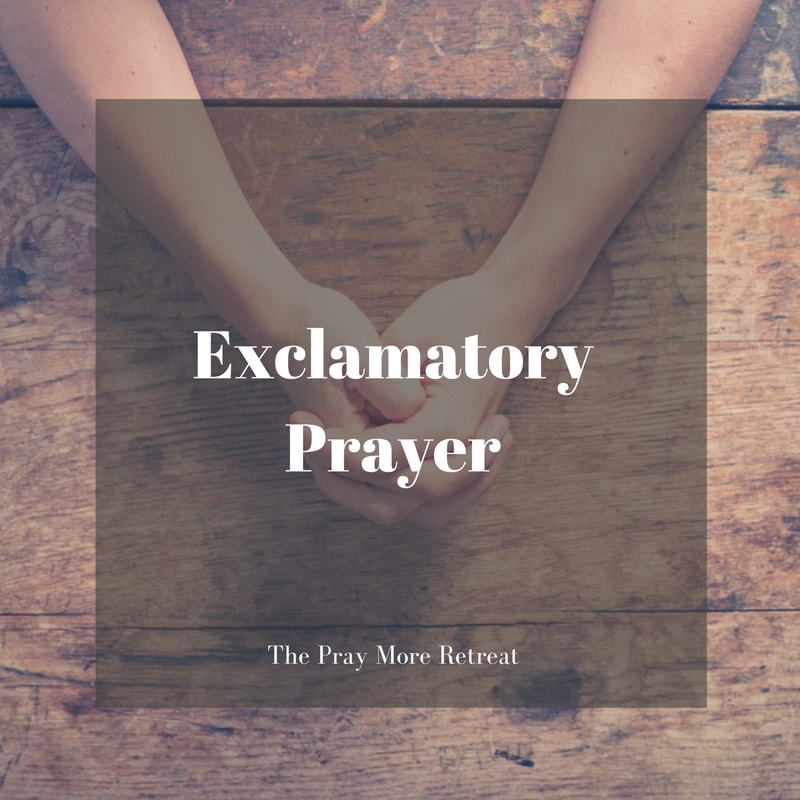Summary
Stephen Beale talks about the importance of prayer life and shares with us a prayer method close to his heart. He gives us some benefits and some advice that we can take inspiration on to create a more steadfast and enriched pray life.
Thank you for watching and participating in this retreat!
Not Registered, yet? Don’t miss the rest of the talks! Register for the Pray More Retreat!
Downloads
Audio MP3
Click here to download audio file.
Printable Study Guide PDF
Click here to download the printable study guide.
Printable Transcript PDF
Click here to download the transcript of the video presentation.
Reflective Study Guide Questions
“Mary our hope, have pity on us. Sweet heart of Mary, be my salvation. Sweet heart of Jesus, be my love. Heart of Jesus, burning with love of us, inflame our heart with love of Thee. Eucharistic Heart of Jesus, increase in us our faith, hope, and charity.”
Blessed Be God
- What exclamatory prayer might you silently pray when the priest is elevating the Host at Mass? (“My Lord, My God” is one, for example)
- In a few of the other talks in this retreat, we’re encouraged to pray without ceasing and to pray while we’re doing mundane tasks in our everyday life. Is there an exclamatory prayer that you can incorporate into your everyday life this Advent? Choose just one and consider writing it down on a piece of paper and carrying that with you in your pocket or your wallet. Whenever you see it, offer that prayer up to God.
- If you’re overwhelmed but desperately want to spend more time in prayer, consider how exclamatory prayer will help you as a building block to get to the prayer life that you want. What does that prayer life look like, exactly? How is it different than your life today?
- Many exclamatory prayers come from Scripture, but you could also make up your own prayer. Take a few minutes to think about what your own exclamatory prayer might say.
Text: Exclamatory Prayer
Hello, my name is Stephen Beale. I’m a columnist at CatholicExchange.com, and I’m also a student at Providence College, getting my Master’s degree in theology. And I’m very pleased to share with you today my reflections on prayer. And so let us actually begin with a prayer before we get to the beginning of the lecture.
Opening Prayer
In the name of the Father, of the Son, and of the Holy Spirit. Amen. Our Father, who art in heaven, hallowed be thy name; thy kingdom come; thy will be done on earth as it is in heaven. Give us this day our daily bread. Forgive us our trespasses, as we forgive those who’ve trespassed against us. Lead us not into temptation, but deliver us from evil. For Thine is the kingdom, the power, and the glory, forever. Amen. In the name of the Father, the Son, and the Holy Spirit. Amen.
Exclamatory Prayer
Today, I’ll be speaking with you about a traditional form of prayer known as exclamatory prayer. These prayers are also referred to as aspirations, evocations, or ejaculations, and traditional devotionals. These are short prayers, usually 1-2 sentences at most, that express a devout desire, praise God, honor a saint, make a particular petition, or even simply state basic truth of the faith. So let’s look at a few examples. And by the way, many of these examples are taken from an old prayer book titled Blessed be God, which was published in New York in 1985 by P. J. Kennedy and Sons. And if you can get a copy of this devotional, I highly recommend it. I think it will certainly enrich your prayer life. Some of the other examples I’m using today are pulled from a website that is a wonderful resource for traditional theology and devotion called fisheaters.com, and I have the link to their section on prayer in the transcript for this lecture, so you can go there if you want to access that. Okay, now to some examples of exclamations, and as you’ll see, these are very simple, short, 1-2 sentences at most type prayers. So I’m just going to read off a few of these: “Mary, our hope, have pity on us.” “Sweet heart of Mary, be my salvation.” “Sweet heart of Jesus, be my love.” “Heart of Jesus, burning with love of us, enflame our heart with love of thee.” “Eucharistic heart of Jesus, increase in us our faith, hope, and charity.”
Some exclamations are tied to specific occasions or circumstances. For example, at some points in the mass, it might be fitting to silently pray certain exclamations. For example, at the Elevation of the Host, one might say “My Lord, my God”. And then for the Chalice one might say “My Jesus, mercy.” There are also exclamations that are intended to be said during the Eucharistic adoration. For example, “We adore thee, thou true breath of angels.” “Oh Jesus, in the most holy sacrament, have mercy on us. Thou art Christ, the Son of the living God.” It’s important to note that many exclamations are also taken directly from scripture. And again, here are a few more examples. “Oh God, have mercy on me, a sinner.” That’s from Luke 18:13. “Teach me to do thy will, because thou art my God.” From Psalm 142:10. “Our Lord, increase our faith”, Luke 17:5. “My Lord and my God”, John 20:28. And finally, “Father, into thy hands I commend my spirit”, which is from Luke 23:46, which in turn is an allusion back to Psalm 30:6.
The Benefits
Personally, I have found exclamatory prayer fill a very important niche in my prayer life, and I hope that if you haven’t already, you will consider incorporating this form of prayer into your daily devotional life. And here, just briefly, are some of the chief benefits of exclamations, and reasons you should become familiar with this traditional form of prayer. I will say some of these may seem a little bit redundant, but I think it’s important to break them out and specify them.
So, the first benefit is the fulfillment of the command to pray unceasingly. In First Thessalonians 5:17, St. Paul tells us to rejoice always and to pray without ceasing. I would certainly say exclamations throughout the day will bring all of us closer to fulfilling this command. Second, I see exclamations as an antidote to the busyness of modern day life. One of the great benefits of exclamatory prayer is that we now have no excuse to not pray throughout the day, as I just said.
Now, most of us do not have the benefit of living in religious communities, where everyone comes together to pray at specified hours at the day as religious brothers and sisters do. Our lives tend to become very cluttered with errands, chores, work, other things that seem so pressing at the time. And, as a result, the time we have available for prayer gets crowded out of the day. But however busy we may become, no one can say they are too busy to say an exclamation. You certainly have the time to say a quick exclamation as you’re walking into work, getting up for a break, or even taking the briefest of pauses from looking at your computer screen, if you happen to be at a desk job. And an added benefit of these prayers is that they are really easy to memorize, so you can say them during activities when you would be unable to read from a prayer book, such as when you’re driving, or jogging, or even doing some chore. So, exclamations can be really easily integrated into your daily life, and the daily life of anyone, no matter how busy they are.
A third benefit is that exclamations become one small step to praying more. And I think you will find, if you start praying exclamations more frequently, is that you will develop a deeper desire to pray, and to pray often, and this will lead you to make the time necessary to do that in your day. So, exclamations can become the simple basic building blocks to a more developed prayer life over time. Fourth and finally, the benefit of exclamations is they extend your morning devotional throughout the day. Now, by now, you may have picked up on the fact that anything can become an exclamation. It can be a particular line from another prayer that you choose to focus on for a day. For example, it could be simply “Hail Mary, full of grace”. Or “Holy Mary, Mother of God, pray for us”, from the Hail Mary. If you are reading The Liturgy of the Hours, it can be a line from one of the songs or other prayers that particularly struck you. And if you pick out one of these lines and make it into an exclamatory prayer, that becomes a way to keep your morning devotional always with you and in your mind throughout the day.
Enriching Your Prayer Life
In closing, I would like to offer the following advice on how to enrich your prayer life with exclamations, in addition to what I’ve already outlined as what I see as the benefits. First, as I said earlier, exclamations are very easy to memorize. So I urge you to start, in a sense, collecting these. Build up an arsenal of exclamations that you always have ready for any circumstance, for any crisis in your life, or any unexpected downtime. When you find yourself without the distractions of technology, the company of friends, or the comfort of a book, the exclamations will be there for you. Second, don’t think of these prayers as only words to be said in isolation. You can also attach an exclamation to the end of any of your other prayers in the morning, evening, or at some other time during the day. Use exclamations to season what is hopefully already a robust prayer life. Third, exclamations can be used in a particular way to deepen your devotion during certain liturgical seasons. For example, during Holy Week, you might consider taking each one of the 7 last words or sayings of Christ on the cross and making those an exclamation for the day. I gave you one example earlier, where he said “Into thy hands I commend my spirit.” You could do something similar during advent. For example, you could read through the many prophecies Isaiah made of the incarnation, and take one line from each to focus on during the day, or each week of advent.
Fourth and finally, use exclamations to enrich your experience of mass. Above, I already gave you some examples of exclamations that are particularly suited for the liturgy of the Eucharist. And the exclamations that are intended for Eucharistic adoration would also be just as suitable for the mass itself. But what I also suggest to you is take a line from the gospel, or any of the other scripture readings, or any of the other hymns or prayers said during mass on Sunday, or daily mass if you’re in the habit of going to daily mass, and turn those into an exclamation. And that can be one way that you carry the mass with you throughout your day, or even throughout your week, and let the spirit of the mass infuse your whole life, so it doesn’t just become something that you experience on Sunday, or in the morning if you, again, are in the habit of going to daily mass.
So, thank you for listening. I do hope you’ll consider incorporating exclamations into your prayer life. Have a good day, and God bless
About Stephen Beale

Stephen Beale is a freelance writer and reporter based in Providence, Rhode Island. Raised as an evangelical Protestant, he is a convert to Catholicism. He writes a weekly column for CatholicExchange and also is a regular contributor to the National Catholic Register and Crisis magazine. He holds a B.A. in classics and history from Brown University. He also has completed the coursework towards an MA in theology at Providence College, where he has focused on the thought and spirituality of the early Church Fathers.

